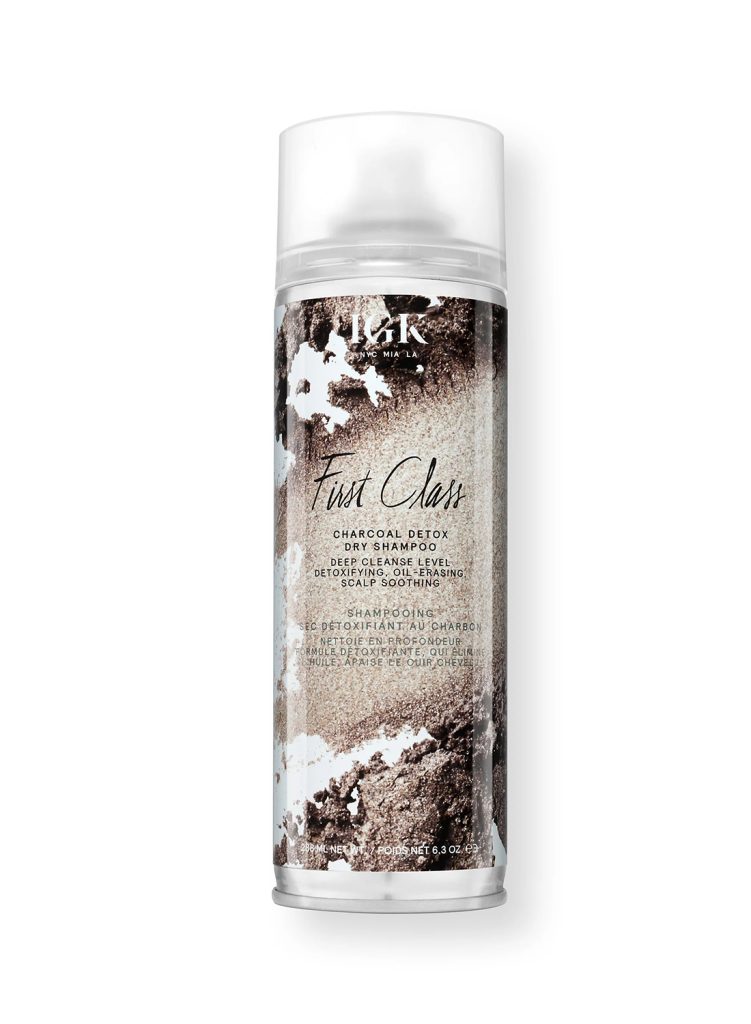Discover the truth about dry shampoo and its potential link to hair loss.
Can Dry Shampoo Cause Hair Loss?
Dry shampoo has gained immense popularity in recent years as a convenient hair care product. However, concerns have been raised about its potential side effects, particularly its link to hair loss. This article aims to explore the connection between dry shampoo and hair loss, examining the composition of dry shampoo, its impact on hair health, and the scientific evidence surrounding this topic. Additionally, we will discuss alternatives to dry shampoo and seek expert opinions to provide a comprehensive overview of this pressing issue.

Understanding Dry Shampoo: What is it?
Dry shampoo is a product designed to absorb excess oil and grease from the scalp, providing a quick refresh without the need for water and traditional shampooing. It typically comes in a powder or spray form and is applied directly to the roots of the hair.
Dry shampoo has gained popularity in recent years as a time-saving and convenient alternative to traditional shampooing. It offers a practical solution for individuals with busy lifestyles or those who are always on the go. Whether you’re running late for work, traveling, or simply want to freshen up your hair between washes, dry shampoo can be a lifesaver.
But how does dry shampoo work its magic? The key lies in its composition and the way it interacts with your hair and scalp.
The Composition of Dry Shampoo
Dry shampoo typically contains ingredients such as starch, talc, clay, and silica. These absorbent substances help to eliminate oil and add volume to the hair. Starch, for example, works by absorbing the excess sebum produced by the scalp, while talc and clay help to soak up any remaining oil.
Additionally, dry shampoos often contain fragrances to provide a refreshing scent. These fragrances not only help to mask any unpleasant odors but also leave your hair smelling fresh and clean.
It’s important to note that not all dry shampoos are created equal. Some may contain additional ingredients like vitamins and minerals to nourish the hair and scalp, while others may be specifically formulated for different hair types or concerns.
The Convenience of Dry Shampoo
One of the main appeals of dry shampoo is its convenience. It allows individuals to freshen up their hair quickly, particularly in situations where traditional washing may not be possible, such as during travel or for individuals with limited mobility.
Moreover, dry shampoo is also favored by those looking to extend the time between regular washings. Frequent shampooing can strip the hair of its natural oils, leading to dryness and damage. By using dry shampoo, you can maintain a clean and refreshed look without over-washing your hair.
Another advantage of dry shampoo is that it can help add volume to your hair. By absorbing excess oil, dry shampoo can make your hair appear fuller and more voluminous, giving it a lift and bounce that lasts throughout the day.
While dry shampoo offers many benefits, it’s important to remember that it is not a substitute for regular washing with water and traditional shampoo. It should be used as a temporary solution to refresh your hair and scalp, rather than a long-term replacement for proper cleansing.
So the next time you’re in a rush or simply want to extend the time between washes, reach for a bottle of dry shampoo and enjoy the convenience and freshness it provides.
The Connection Between Dry Shampoo and Hair Health
While dry shampoo can be a valuable tool in maintaining a fresh appearance, it’s important to understand its impact on hair health. Let’s dive deeper into how dry shampoo works on hair and explore the potential side effects that excessive use can have.

How Dry Shampoo Works on Hair
When applied to the scalp, dry shampoo absorbs excess sebum, the natural oil produced by the scalp. This can provide a temporary solution for oily hair, making it appear cleaner and more voluminous. The main ingredients in dry shampoo, such as starches, clays, and powders, work by absorbing oil and dirt, giving the hair a refreshed look. Some dry shampoos also contain fragrance to leave a pleasant scent.
Aside from its oil-absorbing properties, dry shampoo can also add texture and volume to the hair. This makes it a popular choice for creating hairstyles with more grip, such as updos and braids. By spraying dry shampoo onto the roots and gently massaging it in, you can achieve a lifted and fuller look.
Moreover, dry shampoo can be a time-saving option for those with a busy lifestyle or limited access to water. It allows individuals to extend the time between traditional hair washes, reducing the need for frequent shampooing and potentially minimizing heat damage caused by styling tools.
Potential Side Effects of Dry Shampoo
Although dry shampoo can be beneficial in certain situations, its excessive use can have negative consequences. It’s important to strike a balance and use it sparingly to avoid potential side effects.
The buildup of dry shampoo on the scalp can clog hair follicles and potentially lead to hair breakage and hair loss. This occurs when the product is not properly removed during subsequent washes. Over time, the accumulation of dry shampoo residue can suffocate the hair follicles, hindering their ability to grow healthy strands. Therefore, it’s crucial to thoroughly cleanse the hair and scalp to prevent any potential blockage.
In some cases, dry shampoo may also cause scalp irritation, itching, and dryness. This can be attributed to the ingredients, such as alcohol and fragrances, which can be drying to the scalp. Individuals with sensitive skin or pre-existing scalp conditions should exercise caution when using dry shampoo and consider consulting a dermatologist if any adverse reactions occur.
Furthermore, it’s worth noting that dry shampoo is not a substitute for regular hair washing. While it can provide a quick fix for oily hair, it does not cleanse the scalp or remove product buildup as effectively as traditional shampoo and water. Therefore, incorporating regular hair washing into your routine is essential for maintaining optimal hair and scalp health.
In conclusion, while dry shampoo can be a convenient and effective solution for refreshing and styling hair, it’s important to use it judiciously and be aware of its potential side effects. By understanding how dry shampoo works on hair and taking necessary precautions, you can enjoy the benefits it offers while keeping your hair and scalp in optimal condition.
Dry Shampoo and Hair Loss: Is There a Link?
The concern regarding the link between dry shampoo and hair loss has prompted scientific studies and personal anecdotes.
Dry shampoo has become increasingly popular in recent years as a convenient alternative to traditional shampooing. It is designed to absorb excess oil and refresh the hair, making it a go-to product for those who are short on time or simply want to extend the time between washes. However, with its rise in popularity, questions have been raised about whether dry shampoo can contribute to hair loss.
Scientific Studies on Dry Shampoo and Hair Loss
There is limited scientific research specifically addressing the relationship between dry shampoo and hair loss. However, a study published in a renowned dermatology journal found that prolonged use of dry shampoo combined with infrequent hair cleansing can lead to scalp inflammation and, in some cases, hair thinning and hair loss.
The study, conducted on a group of individuals who used dry shampoo regularly, revealed that the buildup of product residue on the scalp can clog hair follicles, impede hair growth, and potentially lead to hair loss. The researchers noted that excessive use of dry shampoo without proper cleansing can disrupt the natural balance of the scalp, creating an environment that is not conducive to healthy hair growth.
While this study provides valuable insights into the potential negative effects of dry shampoo, it is important to note that more research is needed to fully understand the extent of its impact on hair loss. Different individuals may react differently to dry shampoo, and factors such as hair type, scalp condition, and frequency of use can all play a role in determining the outcome.
Personal Accounts of Hair Loss After Dry Shampoo Use
Many individuals have reported experiencing hair loss after using dry shampoo excessively. While personal anecdotes cannot provide definitive evidence, they do highlight the need for caution when using this product.
Some people have shared their experiences of noticing increased hair shedding or thinning after relying heavily on dry shampoo. It is important to consider that these accounts may be influenced by various factors, including individual sensitivities or underlying hair and scalp conditions. However, they serve as a reminder that moderation and proper hair care practices are key when incorporating dry shampoo into a hair care routine.
Experts suggest that using dry shampoo as a temporary solution between regular washes is generally safe. However, it is crucial to follow the product instructions, avoid excessive use, and ensure that the scalp is properly cleansed to prevent any potential buildup or irritation.
In conclusion, while scientific studies suggest a possible link between prolonged use of dry shampoo and hair loss, further research is needed to establish a definitive connection. Personal accounts of hair loss after using dry shampoo excessively also highlight the importance of using this product in moderation and maintaining a healthy hair care routine. As with any hair care product, it is always advisable to consult with a healthcare professional or dermatologist if you have concerns about hair loss or scalp health.

Our Top Picks for the Best Dry Shampoo for Breakage
IGK Hair – First Class Dry Shampoo Review

IGK Hair’s First Class Dry Shampoo deeply cleanses with its unique charcoal powder formula, effectively absorbing oil, sweat, and odors. It’s free from sulfates, parabens, benzene, and mineral oils, ensuring a safe application for all hair types.
With just a small amount, hair feels refreshed for longer periods, while also gaining volume. The product is travel-friendly with a delightful scent, and ethically, IGK commits to a cruelty-free stance.
Amika – Perk Up Talc-Free Dry Shampoo Review

Amika’s Perk Up Talc-Free dry Shampoo is the closest thing to washing your hair without water – a talc-free, true dry cleanser that absorbs oil and refreshes hair with natural rice starch. Leaves no white residue, ever.
Absorbs excess oil, buildup and odor without talc or aluminum, adds volume and cools scalp.
The product boasts strong reviews from users and has a heavenly scent that will leave you turning heads.
Klorane – Dry Shampoo With Oat Milk Review

Klorane’s dry shampoo with oat milk leaves hair looking refreshed, full of body and volume while extending the life of blowouts. The ultra-fine powders blend invisibly into hair with no chalky residue.
Ultra-gentle, plant-based dry shampoo eliminates oil, dirt and odors. Hair is clean with added volume and texture.
According to the creator, this dry shampoo is the most awarded dry shampoo ever receiving awards from Allure, InStyle, and more.
Alternatives to Dry Shampoo
If you are concerned about the potential side effects of dry shampoo, there are alternative methods to keep your hair fresh.
Natural Alternatives for Hair Freshening
Consider using natural products, such as cornstarch, baking soda, or arrowroot powder, to absorb excess oil and refresh your hair. These alternatives are gentle on the scalp and do not pose the same risks as some commercial dry shampoos.
Tips for Reducing Dependence on Dry Shampoo
To reduce your reliance on dry shampoo, try gradually spacing out your regular washings. Additionally, adopting a proper hair care routine, including using gentle shampoos and conditioners suitable for your hair type, can help maintain a healthy scalp and hair.
Expert Opinions on Dry Shampoo and Hair Loss
Seeking expert opinions can provide valuable insights into the potential risks associated with dry shampoo.
Dermatologists’ Views on Dry Shampoo
Dermatologists suggest that while occasional use of dry shampoo is generally safe, frequent and prolonged use should be avoided. They emphasize the importance of maintaining a clean scalp free from product buildup to promote optimal hair health.
Hair Stylists’ Perspectives on Dry Shampoo Use
Hair stylists acknowledge the convenience of dry shampoo but advise moderation. They recommend using dry shampoo as a temporary solution for greasy hair emergencies, rather than as a daily substitute for traditional washing.
In conclusion, while dry shampoo can be a useful product for refreshing the hair, excessive and prolonged use may have detrimental effects on hair health, potentially leading to hair loss. It is important to be mindful of this and consider alternatives and expert advice. Prioritizing a healthy scalp and hair care routine is crucial for maintaining optimal hair health in the long run.+





